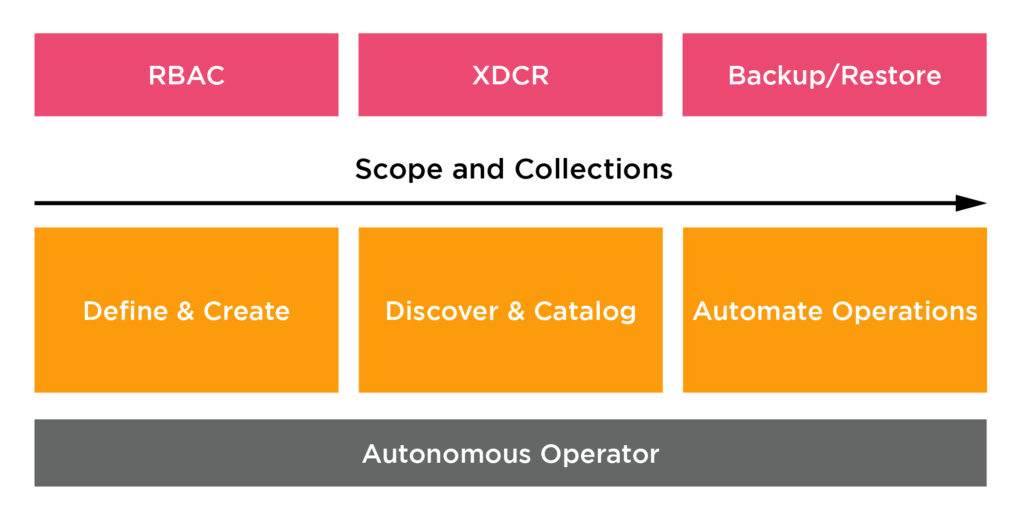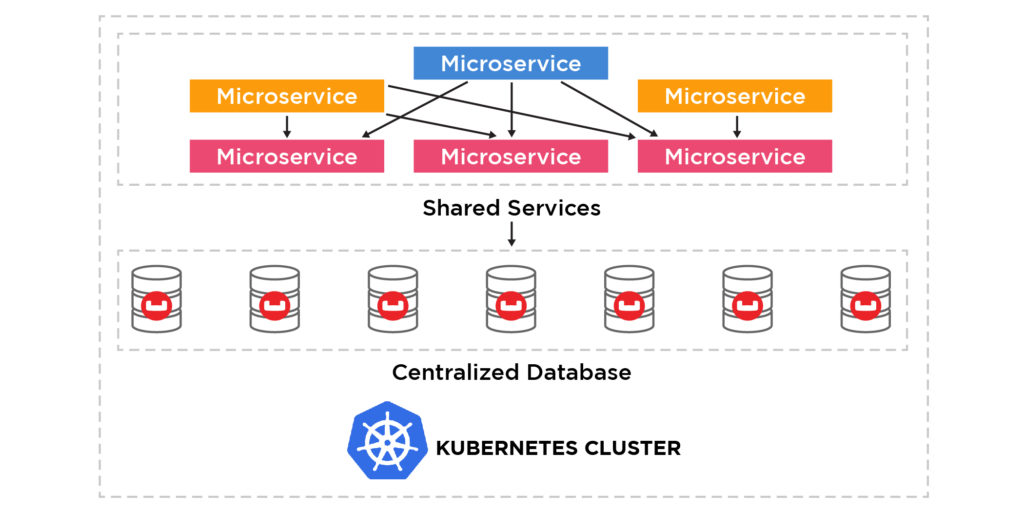We’re pleased to announce the release of Couchbase Autonomous Operator 2.3.0. The central theme of this release is ‘simplify and innovate’.
We are introducing significant architectural enhancements to simplify DevOps and development. New data organization features from Couchbase Server 7, such as Scope and Collections, can now be managed and automated by Autonomous Operator.
In addition, we are introducing an innovative solution to self-certify and validate the compatibility of Kubernetes platforms and their specific components, such as storage and networking with Autonomous Operator.
Get Started!
Here’s how you can start evaluating the new features in Autonomous Operator under Cloud-Native Database Automation:
What’s New in Autonomous Operator 2.3.0?
Manage Scopes and Collections with Autonomous Operator
Scopes and Collections is a significant architectural improvement to Couchbase Server 7.0 that benefits DBAs and developers.

Data isolation and high application density use cases are crucial for using Couchbase Autonomous Operator with modern application development, i.e., microservices-based architecture.
Developers use scopes and collections to organize data as logical containers within a Couchbase bucket for:
Schema isolation: A mechanism to group all collections for a single application, similar to the schema concept in Oracle and other relational databases. This feature enables application consolidation by eliminating name collisions and reliance on naming conventions. Collections for each application can now live in their own schema/scope.
Microservice-based isolation: Microservices require logical isolation and access isolation from each other. Collections with role-based access control (RBAC) enable customers to consolidate their microservices-based applications onto a single Couchbase cluster and significantly reduce their TCO.
With Autonomous Operator 2.3.0, we introduce Scopes and Collections for Kubernetes deployments where Data Isolation and Dynamic Data Containment are very important use-cases. This is especially important for modern application development based on microservices architectures.

With this release, Autonomous Operator can fully manage scopes and collections within a bucket. Autonomous Operator provides fine-grained access control, cross-datacenter replication, and improved scalability for scopes and collections. Migration from Couchbase Server 6.x to 7.x happens seamlessly with no additional steps required at your end.
Learn more about how Scopes and Collections work in Autonomous Operator.
Operator Self-Certification Lifecycle
With the Autonomous Operator 2.3.0 release, a new Operator Self-Certification Lifecycle tool is available that removes barriers to adopting certified Kubernetes platforms and their specific components, such as storage and networking.
Today, Autonomous Operator is tested and certified against most major platforms such as Amazon EKS, Google GKE, Microsoft AKS, and Red Hat OCP. Official certification is time-consuming, so this has to be constrained, but it doesn’t leave you without choices. We understand that end users may not want to use one of the officially certified platforms for various reasons:
-
- Data locality – vendors may not operate in your country or region
- On-premise deployments – you may be using your own version of Kubernetes
- Vendor lock-in – you may be tied to existing infrastructure providers
Thankfully, there is another way to support these users by providing confidence that the Autonomous Operator will function as designed in your environment. This is why we are introducing a self-certification tool with Autonomous Operator.
Learn more about Operator Self-Certification Lifecycle.
Resources
But that’s not all! There are a number of other enhancements that you can read more about in the product-specific release notes.
Here are direct links to some useful resources, new how-to guides and concept pages:
